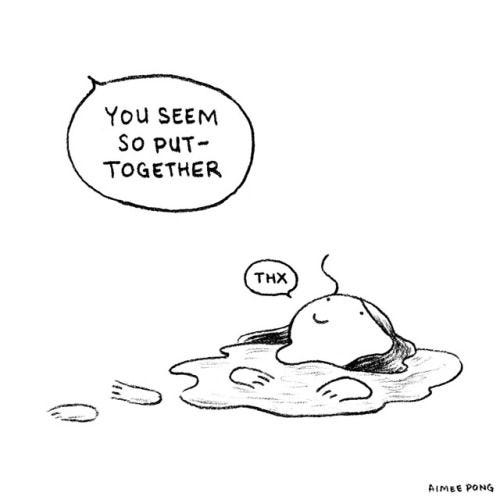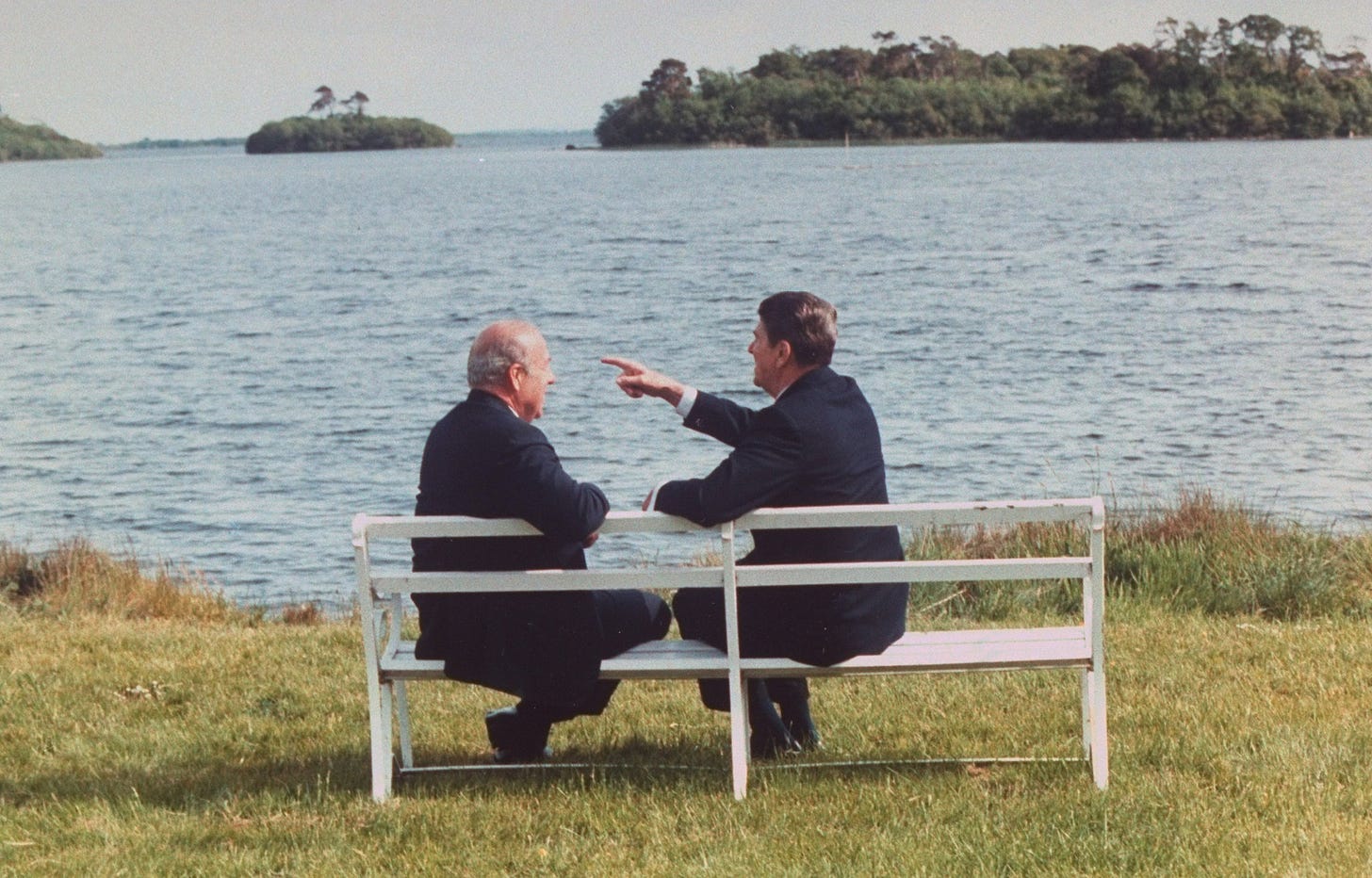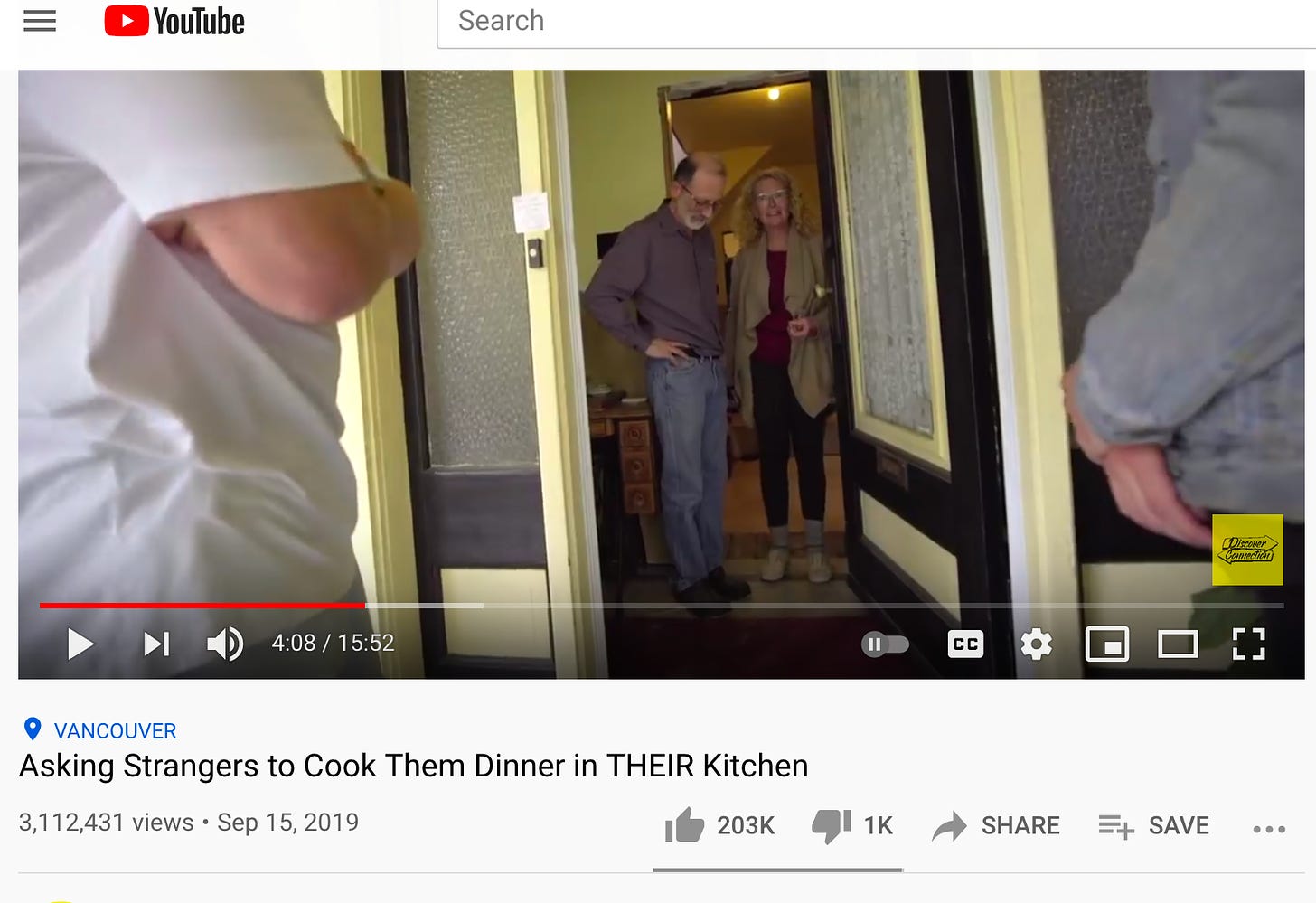Edition #60: Stop Hiding The Ugly
Plus, Russell Wilson and Ciara, inspecting female rage, and a heartwarming video
A Note From the Editor
If someone were to ask you to describe yourself in three words, what would you say? You would probably use adjectives: hard-working, loyal, silly, and they would probably be good ones. You are kind to yourself in this exercise because that is what the exercise is for, a bit of self-reflection paired with regurgitations of the traits you’ve heard other people characterize you as over the years. Cheerful, intelligent, humble. These are the ways we’re allowed to perceive ourselves, to announce ourselves to the world — the shiny, smoothed-out version who is happy, perpetually busy, doing more than or at least as much as the next person. An upward trajectory, satisfied in our careers, relationships, or both. Striving for the next, better thing, but not so much so that we are unable to enjoy, and digitally document, the present.
We don’t leave as much space for our ugliness, we don’t accommodate it the same way. Don’t cry in the office, men don’t cry, don’t post crying selfies because they make everyone uncomfortable, don’t answer “How are you?” with anything less than an automatic “Fine” (recited with a raised octave in the middle, fuh-IH-ne!) and a tight smile. These are our silent societal contracts, ones we don’t need to be explicitly taught in order to understand the necessity of our compliance. It is this bury-the-bad backdrop, I think, that allowed me to live with an unchecked eating disorder for so many years.
I don't remember the day I began to hate my body, whether it was a distinct moment, the flip of a switch, or a slow collection of minor moments that came to a head at some point, but I do remember when the hatred transpired into action. In eighth grade, I heard an older kid at my Arts school mention how you could chew your food and spit it out into a cup. Like eating without the calories, and so easy! I began to partake in this disgusting habit without reserve, carrying around a small cardboard container that the tater tots came in at lunch and promptly spitting my mound of half-chewed, saliva-soaked food back into it. I shared the trick with my best friend at the time and we became partners in the quest to consume as little food as possible. These were the MySpace days, and we discovered an online community of waify, well-dressed girls who would post bulletins titled “E.D” (which stood for eating disorder), in which they would share their tips for eating as little as possible or celebrate how few calories they’d consumed that day. There wasn't much talk of recovery in any of these small digital spaces, but then, we were too young to realize that our habits might be considered a sickness by some. It never crossed my 12-year-old mind I had something in me that needed to be recovered from. My journey had only just begun, and as life went on, I would find many more creative ways to deprive my body of nutrients and love.
In the tenth grade, I asked my best friend whether she might be interested in a challenge, just for fun — let’s see how long we can go without a bite of food. She caved and ate a doughnut hole on day three, I was furious. In dance class that week, I would have to take several bathroom breaks throughout the evening to go cry in private because my body felt so weak, and still I persisted. I made it five whole days without eating a single morsel and celebrated with a trip to Golden Corral. That same year I learned how easy it was to make yourself throw up, two fingers tickling the back of your throat, short nails required, and the trick was added to my repertoire. I liked throwing up because it allowed me to eat as much food as I wanted beforehand and afterward I’d feel so exhausted that I had to go lie down, providing a false sense of accomplishment similar to the post-workout feeling. I didn’t throw up daily, but I do have memories of purging in what I now see as frighteningly public places; at a graduation party, at a friend's house, at a hospital during an emergency that was not my own. My body was perfect just the way it was, I had a flat stomach and thicker thighs, a butt. I didn’t need to deprive myself or throw up to maintain this, but it didn’t matter. All I saw was wrongness and so I persisted in trying to right those wrongs. Quietly, without acknowledgment.
I was catching up with a friend recently. We checked in on each other’s mental health and she spoke of hers with an authority that surprised me. She recounted a method she uses to identify the severity of how she’s feeling on any given day, how she communicates it to her partner so that they are on the same page and are able to handle the situation together. I couldn't get that idea out of my mind, taking such a proactive, earnest approach to caring for yourself, and in that reflection, I realized I have never even Googled any of the things that have ailed me. I’ve never Googled “eating disorder” because even in the thick of it, I didn’t identify with having one. I don’t think I used the phrase “eating disorder” until very recently. Though I’ve been recovered — even using that word feels wrong — for over six years now, though I am an adult who is able to look back and see those behaviors were dangerous and harmful, it still took me this long to identify them as such. To give them a name, to associate them with me, to admit I had a problem and that the problem probably didn’t start with me.
Tolerance is a gift that we aren’t willing to dole out as often as it is required. We aren’t taught to tolerate flaws, and we aren’t taught to identify with them or to speak about them. Flaws are to be suffered in silence, worked out behind closed doors. Sometimes the doors are so tightly sealed shut that even we aren’t able to pry them open. If we ignore our flaws hard enough, if we bury them properly. we don’t have to admit the things they signify about us. We can keep pretending that we are nothing but a basket of positive adjectives: hard-working, loyal, silly, and we can continue to be celebrated by our loved ones for these positive attributes. We can be a hard worker, but we cannot be a hard worker who is putting so much pressure on herself that she is making herself physically sick to cope with the stress of it. Tolerance is a much-needed start, acceptance and destigmatization is a whole different ball game. No one I know is perfect or without suffering, and I’d like them to feel as comfortable sharing those parts of themselves with me as they do the “good” parts. I’d like to welcome those conversations in, without judgment and with open arms.
Cheers, my dears, and as always, thank you for reading. I’d be curious to hear your take on tolerance. If we normalized airing our less desirable traits and our struggles, do you think we might have a better, more mentally healthy society? Do you think certain topics aren’t meant to be discussed openly, that they should be private in nature?
If you or someone you love are struggling with an eating disorder, contact the National Eating Disorder helpline. And know that I love you.
Three Pieces of Content Worth Consuming
Russell Wilson and Ciara Make The Perfect Couple. I have no vested interest in Ciara or Russel Wilson so I’m not sure what caused me to read this piece but I’m so glad I did. The account of the love between these two celebrities made me feel a sense of peace and of striving. I am not married or in a committed relationship at the moment, but I've been in relationships before and observed marriage in a close enough setting to know that it is never seamless and takes work. But when you hear that, work, it normally feels heavy and hard. This felt like an entirely different approach to marriage; making an intentional choice to put one another first, coming at the relationship with a collective, clear intention. Also, after reading this, I adapted Ciara and Russell’s morning prayer and it has been a perspective-shifting treat.
On Female Rage. This essay is an oldie but goodie, and it is powerful for me as a woman who has claimed many times throughout adulthood to “never get angry, only sad." Jamison, one of the most astute essayists of our time, contemplates her aversion to female rage, first from a societal expectation standpoint (society is not accomodating of a woman's anger, woman's anger is deemed not palatable, aggressive, distasteful, whereas, for men, the same reaction is considered an acceptable display of power), and then from a practical standpoint. The purpose of anger over sadness is the ability to crystallize anger as a force of change, a weapon of action that allows you to do something to change that thing you feel angry about. Embrace the anger, claim it, use it. You can also listen to this essay here.
“In truth, I was proud to describe myself in terms of sadness rather than anger. Why? Sadness seemed more refined and also more selfless — as if you were holding the pain inside yourself, rather than making someone else deal with its blunt-force trauma.”
Is It Really Too Late to Learn New Skills? Last year, I bought a book on palm reading. Maybe it was a Freudian slip of sorts, as I imagined myself at a party packed with people in which I could flounce around and practice my newly acquired skill. I would take their hand between mine, each palm different in texture and weight, and gaze into their eyes, fostering the sort of physical and mental human connection that I had been missing. I did not intend to be a professional palm reader; I simply wanted to acquire a new skill, something just for me and just for fun. This piece is a lovely examination of that practice, and of the beauty of learning something new. It discusses the stretchiness of our abilities, debunking the adage that old dogs cannot learn new tricks while tethering expectations of our not-yet-acquired skills.
“The prospect of reinventing myself as, say, a late-blooming skier or ceramicist or marathon runner sparks only an idle interest, something like wondering what it might be like to live in some small town you pass on the highway.”
Perhaps You Should…
Take a Shultz Hour
Somehow, even now that I am working from home and living alone with no children, I still feel busy, Busy is the preferred American state of mind and it can be all but an impossible trap to escape. Worse, busyness doesn’t allow for strategic, long-term thinking. I love the idea of taking a Shultz Hour, a practice dubbed by the later George Shultz, a former secretary of state. For one hour a week you lock yourself in a room with zero interruptions, armed only with a pen and paper, and consider life’s larger questions, thinking about longer-term aspects of your career, your relationships, your desires, etc. I will be starting my Shultz hour next week.
**Bonus Content** (The Happiest Video)
My little brother sent me this video late last night and it brought me unbounded joy. Two men in Canada go door-to-door (pre-pandemic) offering to cook dinner for strangers later that night, in the stranger’s house. The end result is uplifting, sweet, and very Canadian, with a larger resounding message about the importance of fostering more connection with others in daily life.
A Quote From A Book You Should Read:
“We were a chocolate-box family, I thought. Brightly wrapped on the outside and oozing sticky darkness within.”
-The Night Tiger by Yangsze Choo
This newsletter is best served with a side of conversation, so drop your opinions, reflections, and thoughts in the comments below and let’s get to talking.
Or, share the most thought-provoking piece from today’s edition with someone you love, then call them up to discuss, debate, and percolate. As a wise woman once said, “Great minds discuss ideas.”






